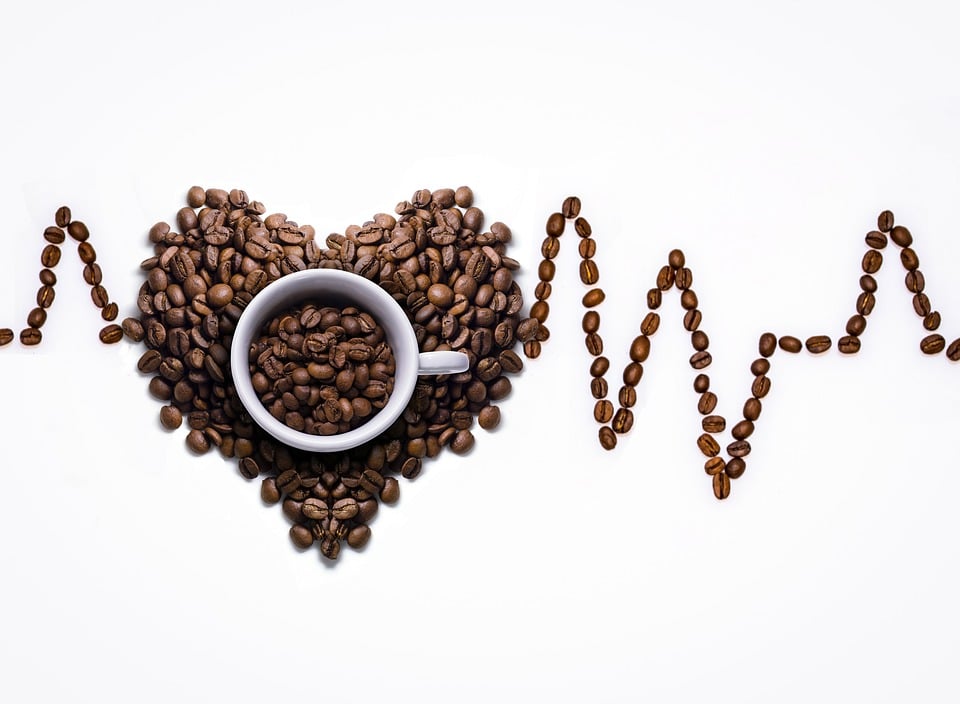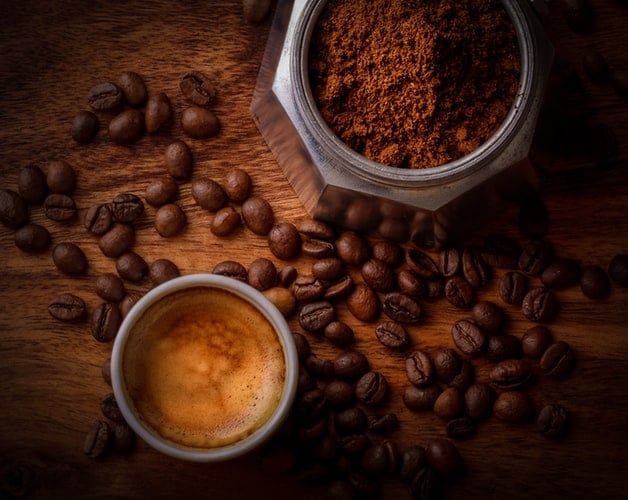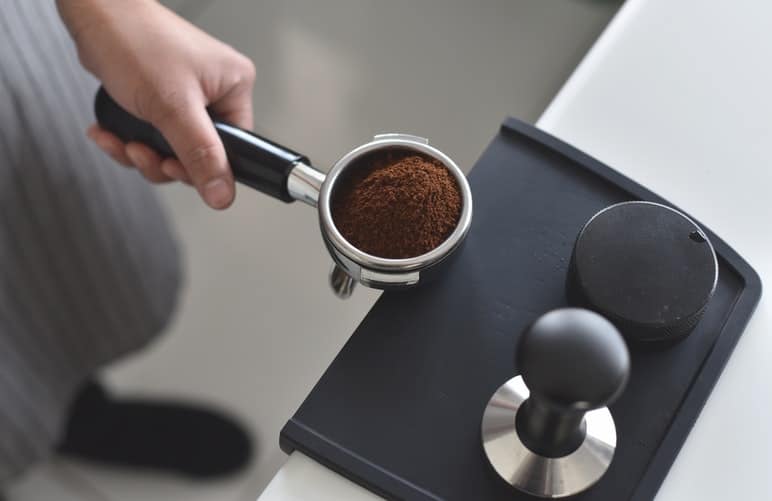Most people enjoy consuming coffee, and I know many people who find pleasure in eating coffee beans, even using them when cooking. In conversation, I’m often asked, “Is eating these beans harmful to health?”
I’ll try to explain to you what effect you can get from consuming coffee in this way, as well as tell you about all the nuances – who will benefit from such a snack and who should probably stay away from eating coffee beans.
Can I eat coffee beans?

Eating good coffee beans does not do any harm to your health, but it’s worth noting that you should not abuse them. Beans are filled with substances such as antioxidants and caffeine, thanks to which you can increase your energy supply for the day and reduce the risk of many diseases.
However, excessive consumption can cause unpleasant side effects. For example, if you eat coffee beans covered with chocolate, you run the risk of gaining calories, sugar and fat. However, if you consume them in moderation, then the caffeine in the beans can be a safe way to satisfy your needs.
How many beans can you eat per day?
It all depends on how much caffeine you like to consume per day. Many people can drink from 200 mg to 400 mg per day. This can be compared with about 5 cups of espresso per day. The amount of caffeine in beans can vary depending on the method of stripping and their size. On average, one chocolate coated coffee bean contains approximately 12 mg of caffeine.
With a little math, we can figure out that you can consume no more than 33 chocolate beans per day, provided that you avoid other sources of caffeine. Just do not forget about the calorie content of such beans.
A little story about chewing a whole bean of coffee

So, what are coffee beans?
By coffee beans, we mean the seeds of the fruit of a coffee tree that grows in tropical countries. Some people call these seeds coffee cherries.
Drinking coffee originally consisted of chewing the best coffee beans. People learned this method from observing wild goats, who were very fond of chewing these beans. Legend has it that one shepherd noticed that the goats that ate the usual leaves and grass were different from the goats that ate the fruits of coffee. Due to eating beans, goats became more energetic and peppy. It is because of this invigorating effect that people decided to start eating coffee beans.
This is interesting: Some African tribes used coffee beans to restore their strength during long hikes. So the beans not only give a surge of strength and energy but also have a nutritional affect – the tribes mixed the fruits of coffee with animal fat and rolled the resulting mass into balls.
Nowadays, hardly anyone eats raw beans because many have replaced them with fried beans which, by the way, brings great benefits to our health.
The Benefits of Eating Coffee Beans
1. Great source of antioxidants
One of the most common and powerful antioxidants in coffee is chlorogenic acid, which can improve our health. With the help of chlorogenic acid, it is possible to reduce the risk of developing type 2 diabetes, as well as fight inflammation.
Some scientists suggest that this antioxidant has properties that can help avoid cancer. The amount of chlorogenic acid may vary depending on the type and method of roasting coffee beans. Unfortunately, due to roasting, approximately 50% to 95% of the acid is lost, although the fruits of coffee are still considered perhaps one of the best sources to satisfy hunger.
2. Caffeine is absorbed more quickly
Many people know that caffeine is a natural stimulant that we find in many foods and drinks, including all our favorite coffees and teas. On average, one cup of coffee contains 8-9 coffee beans. It is logical to assume that by eating beans we metabolize caffeine faster than consuming them in liquid form.
One study showed that drinking two cups of coffee at 200 mg of caffeine each, equal to 17 coffee beans, gave the same result as a 30-minute sleep on alertness and emotion. In another study, scientists found that approximately 60-70 mg of caffeine, which is equivalent to 1 cup of espresso or 5 coffee beans, resulted in improved attention and mood throughout the day.
So how does caffeine work?
Caffeine suppresses adenosine, a chemical that causes drowsiness and prepares us for sleep. Caffeine also can improve our physical stamina and weight loss due to increased metabolism.
3. Improving Your Memory
Let’s go back a bit to a 2013 study at Johns Hopkins University, in which students were given 200 mg of caffeine after each study period. It turned out that caffeine helped students strengthen their memories until about 24 hours after drinking coffee.
It is unlikely that you are upset by such news, 200 mg is a daily dose for a middle-aged person.
4. Reduced muscle pain after exercise
Thanks to a 2017 study, scientists learned that coffee was able to reduce muscle pain after exercise by more than 50%. For example, the Aleve ingredient reduces this same pain by 30%, and aspirin by only 25%. Another study was conducted on distance cyclists which showed that 400 mg of caffeine could still be beneficial for muscle pain in people who do not abuse coffee. This dose exceeds the daily norm by 2 times.
Therefore, the next time you go to the gym, do not forget to bring a handful of coffee beans with you!
It must be noted though, that the 2017 study also allowed scientists to find out that people who constantly drink coffee may not get the same benefits due to tolerance.
5. Increased Stamina During Training
You will not only begin to feel better after training, but you’ll also get the best workout!
Scientists were able to find out that in people who consumed coffee beans and carbohydrates after exercise, muscle glycogen increased by about 66% after a full workout as opposed to people who consumed only carbohydrates.
Since glycogen is the fuel used for sports, a group of people who consumed carbohydrates with caffeine the next day was able to exercise more energetically and harder.
One other study showed that 9-mile runners, thanks to eating coffee beans before their workout, had improved anti-inflammatory responses during and after jogging.
Beans are certainly relatively healthy as a snack! Compared to peanuts, coffee beans contain about one-fifth of the fat, half the calories, and four times as much fiber.
6. Fiber
Coffee beans have a high fiber content with a serving of about 30 beans. The amount of fiber can provide about 3 grams or 10 percent of your daily intake. For example, a cup of regular brewed coffee contains 0 grams of fiber.
7. Reducing prolonged chronic inflammation
Researchers at Stanford University found that caffeine blocks the specific gene responsible for chronic inflammation, which affects how we feel day after day and has been linked to all-cause mortality in people 85 years and older.
8. Men are less likely to have erectile dysfunction
According to the University of Texas Medical Center, a daily intake of 85 mg of caffeine – 43% of the average adult’s daily intake – may be sufficient to fight erectile dysfunction.
9. Coffee Beans Have Fewer Calories
One ounce of highly concentrated espresso coffee beans provides just three calories. You can enjoy the wonderful benefits of coffee without worrying about your diet. (Some people even started using coffee-based skincare products to look fresh.)
But let’s face it: no one will say no to oats, cashews, almond butter, chocolate chips, dates, and cinnamon. Our ingredients are also vegan and gluten-free … mmm, filled with coffee.
10. Enhances Individual Life
Consuming caffeinated coffee increases a person’s lifespan. Studies have shown that drinking coffee reduces early mortality in both sexes.
11. Regulates blood pressure
Coffee beans trap excess fat, which can destroy blood vessels. People who suffer from blood pressure should think of eating coffee beans. This is an ideal way to deal with such cases. Frequent consumption of coffee bean supplements helps maintain blood pressure.
12. Detox
The addition of coffee beans in our diet helps cleanse toxic substances that adhere to the intestinal lining. Frequent use of coffee extract helps cleanse the body of harmful substances.
13. Eating Coffee Beans Suppresses appetite
According to those who use coffee beans, a few days after eating, they experienced a significant decrease in appetite. This is very good, especially for people who find it difficult to control their weight. This is mostly great for those who eat more than they should. With coffee beans, you will feel full even between meals, helping to get rid of hunger. This is most relevant for people interested in weight loss.
14. Reducing Cases of Skin Cancer
Studies have shown that the likelihood of developing skin cancer decreases by about 20 percent if a person takes no more than four cups of coffee per day. The types of coffee beans are also applicable here since studies show that some types of coffee are ineffective.
15. Reduces the risk of heart disease
Coffee in beans improves the health of blood vessels and arteries. It improves blood flow in all parts of the body. Improving blood flow has a positive effect on brain functioning, removal of harmful substances and good vision. Body functions improve, and this leads to greater mental ability.
16. Keeps blood sugar in balance
A coffee bean contains vital enzymes that maintain an equilibrium level of sugar in the blood. The enzyme functions by catalyzing the processes in the pancreas, which produces the hormones insulin and glucagon, regulating blood sugar. This helps lower blood sugar.
Cons Of Coffee Beans
1. High Cholesterol
There is some evidence that eating instead of drinking coffee can lead to increased production of low-density lipoproteins (LDL), “bad” cholesterol. This is due to the presence of two compounds, cafestol, and kahweol, which are present in coffee beans at 10-40 times larger quantities than in brewed coffee.
Although the link between cholesterol and coffee is not well known, it may be advisable to avoid eating beans if high cholesterol is a problem.
2. Heartburn
For people with acid sensitivity, eating coffee beans can lead to painful heartburn. No wonder drinking coffee can make it worse.
Along with natural acids, coffee beans contain several substances, such as caffeine and catechins, which are known to stimulate the production of stomach acid.
They are present in large quantities in whole beans compared to liquid coffee.
3. Sleep Disorder
Eating caffeinated coffee beans can lead to sleep disturbance several hours after ingestion. These disorders include problems falling asleep or sleeping, as well as feelings of insecurity after waking up. The degree of sleep disturbance depends on how many beans are consumed, how often a person consumes coffee, and how long the beans have been eaten.
4. Laxative effect
Coffee beans contain enzymes that stimulate bowel contractions. For this reason, coffee is a fast-acting laxative for many people. Even caffeine-free beans contain laxative enzymes.
5. Increased risk of pregnancy problems such as miscarriage, low birth weight, and early birth
If you are sensitive to caffeine, struggling with anxiety, or pregnant, it is best to limit or avoid drinking coffee beans.
Similarly, if you experience withdrawal symptoms, try reducing your caffeine intake more gradually.
6. Excess Lipid
A study shows that eating coffee beans leads to the production of excess cholesterol. This is usually due to the compounds that are present in coffee beans, i.e. kahweol and cafestol. It is important to avoid eating large amounts of beans to avoid excessive cholesterol.
How Will I Know If I’ve Had Too Much Caffeine?
Everyone knows the unpleasant experiences of a headache, fluctuations and mood swings after an extra cup of coffee. Many have also observed symptoms indicating an overdose of caffeine, such as insomnia, heart palpitations, and muscle tremors.
Drinking too much coffee (more than 500 mg per day) regularly risks damaging your liver, increasing blood pressure and becoming dependent on caffeine, which can lead to a withdrawal period not unlike when you quit smoking.
Again, this is worth keeping in mind if you decide to start snacking on coffee beans.
Light or dark roast beans?
What kind of roasting beans there is does not matter. In terms of taste, it all depends on your personal preferences.
As for the caffeine content, we are not sure exactly which roast contains more, but the National Coffee Association suggests that light roasted beans have a higher caffeine content and they seem to know what they are talking about when it comes to coffee!
Can I eat coffee grounds?

Yes, coffee grounds can also be part of your diet, but again in moderation. It can also be a good fertilizer and can be an excellent scrub for your body among many other uses in everyday life!
Conclusion
Coffee beans can be eaten but should not be consumed in excess.
They are filled with antioxidants and caffeine, which can increase energy and reduce the risk of certain diseases. However, too much can cause unpleasant side effects. Chocolate coated varieties may also contain excess calories, sugar, and fat.
If eaten in moderation, coffee in beans can be a safe and healthy way to get your daily dose of caffeine.
